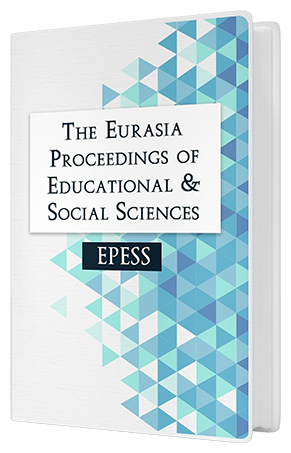THE ROLE OF RESEARCH-BASED CURRICULAR UNIT ON STUDENTS’ SYSTEMS UNDERSTANDING OF HUMAN IMPACT ON THE ENVIRONMENT
Keywords:
Crosscutting concepts, disciplinary core ideasAbstract
The research-based curricular unit presented in this proposal is a response to the new tide of educational reforms in the United States. This curricular unit represents an attempt to frame K-12 science curriculum around three dimensions: crosscutting concepts, disciplinary core ideas and scientific practices recently released in the report on a Framework for New K-12 Science education (National Research Council, 2012). Integration of three dimensions into the development of agriculture-related curricular unit reflects complexity and logic inherent in science education facilitating systems understanding of environmental issues. The development of this learning unit takes place under the initiative of the National Science Foundation (NSF) funded project to explore the efficacy of the agriculture-related unit on high school students’ systems understanding of the human impact on natural systems. The presented unit embodies characteristics that identify research-based curricular unit (Clements, 2007). Preliminary results presented in this study demonstrate potential of close adherence to features identifying research-based curriculum in supporting systems understanding of environmental problems. Mediation results of this nature have larger implications on future efficacy of curriculum intervention.Downloads
Published
Issue
Section
License
Copyright (c) 2017 The Eurasia Proceedings of Educational and Social Sciences

This work is licensed under a Creative Commons Attribution-NonCommercial-ShareAlike 4.0 International License.
The articles may be used for research, teaching, and private study purposes. Any substantial or systematic reproduction, redistribution, reselling, loan, sub-licensing, systematic supply, or distribution in any form to anyone is expressly forbidden. Authors alone are responsible for the contents of their articles. The journal owns the copyright of the articles. The publisher shall not be liable for any loss, actions, claims, proceedings, demand, or costs or damages whatsoever or howsoever caused arising directly or indirectly in connection with or arising out of the use of the research material. All authors are requested to disclose any actual or potential conflict of interest including any financial, personal or other relationships with other people or organizations regarding the submitted work.




